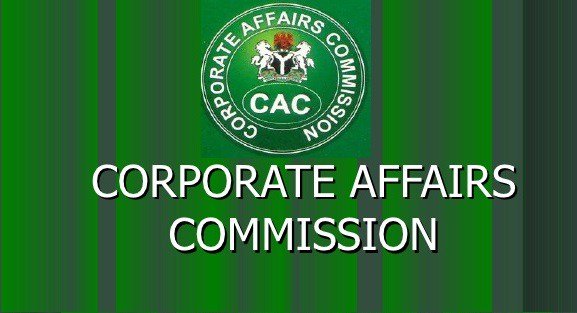INTRODUCTION
The primary law governing companies, businesses and entities in Nigeria is the Companies and Allied Matters Act (CAMA) . Recently, the President of the Federal Republic of Nigeria, President Muhammadu Buhari, assented to the Companies and Allied Matters Bill passed by the National Assembly, thereby repealing the Companies and Allied Matters Act, 1990 .
The new Act, the Companies and Allied Matters Act, 2020 (hereinafter referred to as “CAMA 2020 or the Act” introduced several innovative provisions/changes into the Nigerian corporate and commercial system. The Act also embraced technological trends to increase productivity and ease of doing business in Nigeria.
Essentially, the changes introduced by the Act dealt with inadequacies of the repealed CAMA which had existed for 3 decades, as the Act made a serious overhaul of the Nigerian company system. Some of the salient innovations introduced by CAMA 2020 are discussed hereunder;
HIGHLIGHTS OF SALIENT PROVISIONS IN CAMA 2020
1. Single Member/Shareholder/Director for private companies
CAMA 2020 introduced single member/shareholder for private companies (Section 18(2) CAMA 2020). Thus, the minimum number of persons that can set-up a private company has been reduced to one (1) as opposed to the former minimum requirement of two (2) people. By this reduction, business owners who trades as sole proprietors (or who intends to trade as such) can now have the added benefits of limited liability and access to credit by registering a private company without the need to bring in a new person.
2. “Minimum Issued Share Capital has replaced Authorized Share Capital”
There is no longer a concept of “authorized share capital”, instead, companies are only required to ensure that they maintain the “minimum issued share capital” (Section 27(2) (a) CAMA 2020). On amount of the minimum issued share capital, requires that if a company has a share capital, the memorandum of association shall state the amount of the minimum issued share capital which shall not be less than N100, 000.00 in the case of a private company and N2, 000,000.00, in the case of a public company, with which the company proposes to be registered, and the division thereof into shares of a fixed amount. Also, when a company issues new shares, the Act required that a quarter of such issued share capital (25%) is paid up (Section 128 (1) CAMA 2020).
3. Statement of Compliance to be signed by the Applicant or his Agent
By Section 40 (1) CAMA 2020, the Statement of Compliance that the requirements of CAMA 2020 as to registration has been complied with can be signed by the Applicant or his Agent. This serves as an alternative to the requirement of “Declaration of Compliance”, which must be signed by a lawyer or attested to before a notary public.
4. Use of Common Seal not mandatory
The use of Common Seal is no longer mandatory for companies and where a company has a common seal, the design and use of that seal shall be regulated by the company’s articles (Section 98 CAMA 2020)
5. Technological innovations
In order to reflect the realities of conducting business in this digital age, CAMA 2020 introduced some technological innovations which include the following:
a) An electronic signature is deemed to satisfy the requirement for signing under Section 101 CAMA, 2020.
b) Electronic share transfer forms will be accepted by all companies (Section175(1) of CAMA 2020)
c) With the exception of small companies and companies having a single shareholder, all statutory and annual general meetings shall be held in Nigeria. (Section 240(1) of CAMA 2020)
d) Private companies may conduct its meetings virtually so long as it is conducted in accordance with the Articles of Association of the company. Section 240(2) of CAMA 2020)
e) In addition to the notice of meetings to be given personally or by post, notice may also be given by electronic mail to any member who has provided the company with an electronic mail address (Section 244 (3) of CAMA 2020)
f) Each public company shall keep its audited accounts displayed on its website (Section 374(6) of CAMA 2020)
g) Any document required to be annexed to the annual return may be delivered to the Corporate Affairs Commission (“CAC”) either in hard or soft copy (Section 422 (3)) of CAMA 2020)
h) Company records can be maintained in electronic format (Section 731 (2))
i) Certified true copies of electronically filed documents to be admissible in evidence as same will have equal validity as the original documents (Section 860(1)(2) of CAMA 2020)
6. Recognition of new entities
New entities such as limited partnerships (Part C, sections 746 – 794) and limited liability partnerships (Part D, sections 795 – 810) have been introduced as registrable forms of partnership.
7. Giving of financial assistance by companies
The Act has modified the definition of financial assistance; and by such modification, financial assistance by a company occurs where the act by the company reduces its net assets by up to 50% or completely erodes the net assets. Although, the rule on financial assistance is applicable to both private and public companies but the Act gave much latitude to private companies as regards giving financial assistance. (Section 183 of CAMA 2020). Also, the rule now has more exceptions than previously obtained such as any assistance arising from a scheme sanctioned by the order of the court.
8. Appointment of Secretary for small companies
CAMA 2020 makes provisions for the exemption from appointment of company secretary for small private companies under Section 330(1) CAMA 2020.
9. Provisions on Minority Protection and Corporate Governance
i. Section 265(6) CAMA 2020 allows for enhancement of minority protection through the restriction of a director from simultaneously holding the office of Chairman and Chief Executive Officer of a public company.
ii. Furthermore, there are now restrictions on multiple directorships of public companies as no person can be a director in more than 5 public companies. Thus, any person who is currently a director in more than 5 public companies is required to resign as a director of all but 5 of the companies within two years from the date of the Act. (Section 307(1) & Section 283 (c) CAMA 2020)
iii. Similarly, companies are now required to have at least 3 independent directors and specific criteria must be met before a director will qualify as an independent director (Section 275 CAMA 2020)
10. Reduction of Filing Fees for Registration of Charges
The total fees payable to the CAC for filing has been reduced to 0.35% of the value of the charge, Section 222 (12) CAMA 2020. This means that the cost of registering security interests at the CAC has been reduced by 65% for private companies and 82.5% for public companies
11. Small companies redefined under CAMA 2020
Section 394(3) CAMA 2020 provides that a small company shall be described or fixed as a private company by the Commission from time to time, whose turnover is not more than N120,000,000 (One Hundred and Twenty Million Naira) and whose net assets value is not more than N60,000,000 (Sixty Million Naira). Thus, the thresholds for defining small companies have been changed to enable more companies qualify as small companies and therefore enjoy the benefits conferred on small companies under the law.
12. Share buyback
Companies may now buy back their shares from existing shareholders (pro rata) subject to certain conditions. However, the company’s Articles of Association must permit the share buyback and it will have to be approved by a special resolution (Section 184 of the CAMA 2020).
13. Disclosure of capacity as shareholder
Disclosure of significant control over an entity is now required for companies or limited liability partnerships (as such, disclosures is no longer restricted to Public companies). Thus, any person with significant control over a company shall, within seven days of becoming such a person, indicate to the company in writing the particulars of such control (Section 119 CAMA 2020) and must notify the Corporate Affairs Commission. Also, the Commission is mandated to maintain a register of persons with significant control upon notification by the Company .
14. Exemption procedure for foreign Companies
Foreign companies can now file an application for exemption directly to the Minister of Trade (Section 80 CAMA 2020).
15. Exemption from the appointment of auditors
The law now allows for exemption of small companies or any company having a single shareholder from appointment of auditors at the Annual General Meeting to audit their financial records (Section 402(1)(b) CAMA 2020)
16. Introduction of Company rescue processes
Winding up will no longer be the only option available for dealing with insolvent companies as there are extensive provisions for rescuing a company in distress to prevent it from being insolvent and to keep it alive such innovations include; Voluntary arrangements, Administration and Netting etc. (Section 434-442 CAMA 2020).
17. Insolvency test threshold has been increased (Inability to pay debt)
The test for insolvency i.e. inability to pay debts as they fall due, has been increased from N2, 000 (Two Thousand Naira) to N200, 000, (Two Hundred Thousand Naira) in other to reflect present day realities (Section 572 (a) CAMA 2020)
18. Requirements for insolvency practitioners
The Act has made extensive provisions on the requirements for a person who intends to be insolvency practitioners. The Act stipulated the needed academic qualifications and the number of post qualification experience required. The academic qualification is that such a person must have a degree in law, accountancy or such other relevant discipline with a minimum of five years post qualification experience in matters relating to insolvency. Also, a certification issued by Business Recovery and Insolvency Practitioners Association of Nigeria (BRIPAN), or membership of any other professional body recognized by the Commission is also needed. (Section 705(1)) of CAMA 2020)
19. Framework for implementing merger
i. CAMA 2020 contains a framework for implementing mergers or other forms of arrangement or reconstruction between two or more companies (section 711). Thus, once the transaction is approved by at least 75% in value of the shares held by shareholders present and voting at the relevant court-ordered meeting and thereafter sanctioned by the court, the merger becomes binding on the companies even before the court sanction is filed at the CAC. The court sanction must, however, be filed at the CAC within 7 days. The Act does not require the Court to refer the scheme to the Securities and Exchange Commission (SEC) to consider the fairness of the scheme. It is also possible to structure a scheme of arrangement or compromise under Section 715 of the CAMA 2020 but schemes under Section. 715 can be referred by the Court to the SEC to determine the fairness of the scheme and it does not become effective until the court order sanctioning the scheme has been filed at the CAC.
ii. Furthermore, merger of Incorporated Trustees has been introduced as two or more associations with similar aims and objects under such terms and conditions as may be prescribed by the CAC can be merged (Section 849 CAMA 2020).
20. Interim managers
Section 839(1) CAMA 2020 allows the Commission to by order suspend the trustees of an association and appoint an interim manager or managers to manage the affairs of an association.
21 Bi-Annual Statement of Affairs
Section 845(1) CAMA 2020 provides that the trustees of an association shall submit to the Commission a bi-annual statement of affairs of the association, as the Commission shall specify in its regulations.
22 Netting
Sections 718-721 CAMA 2020 contain provisions on netting . Netting is an essential element of many qualified financial contracts such as derivatives, swaps and hedging transactions.
23 Treasury Shares
Treasury shares are now formally recognized and defined as the Act prescribes what a company can do with such shares after they are acquired (Section 868 CAMA 2020). In the repealed CAMA issued shares of the company that it acquired from its shareholders, was referred to in its schedule but there were no provisions regulating it. Now, the CAMA 2020 permits Companies to sell their treasury shares or transfer them into an employee share scheme.
CONCLUSION
The above analysis highlights the salient innovations introduced by CAMA 2020 as the Act made a serious overhaul of the earlier CAMA. Essentially, the Act created a new category of legal identity for Nigerian businesses, empowered one person to open and run a company, removed all the unnecessary regulatory provisions for small companies, promotes the use of technology in the registration of businesses with a view to making Nigeria’s business environment as competitive as its counterparts around the world. Undoubtedly, the CAMA 2020 will significantly enhance the ease of doing business in Nigeria.





